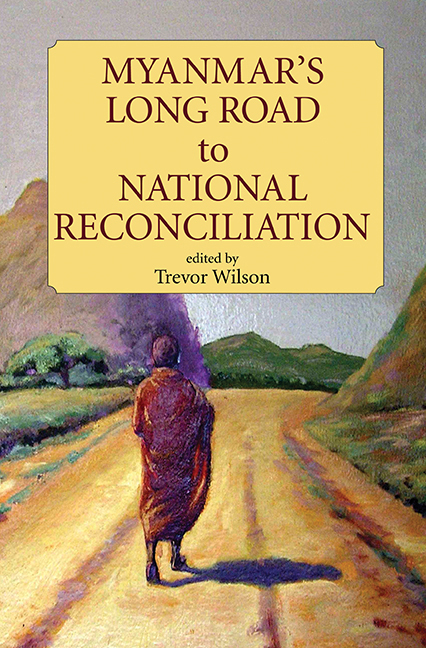Book contents
- Frontmatter
- Contents
- Acknowledgements
- The Contributors
- Glossary
- Overview
- I Perspectives on Recent Political Developments
- II Perspectives on the Economy and on Agricultural Development
- III Perspectives on National Reconciliation and Civil Society Development
- IV Charting the Way Ahead
- 13 Foreign Aid: A Myanmar Perspective
- 14 A Comprehensive International Approach to Political and Economic Development in Burma/Myanmar
- Index
13 - Foreign Aid: A Myanmar Perspective
from IV - Charting the Way Ahead
Published online by Cambridge University Press: 21 October 2015
- Frontmatter
- Contents
- Acknowledgements
- The Contributors
- Glossary
- Overview
- I Perspectives on Recent Political Developments
- II Perspectives on the Economy and on Agricultural Development
- III Perspectives on National Reconciliation and Civil Society Development
- IV Charting the Way Ahead
- 13 Foreign Aid: A Myanmar Perspective
- 14 A Comprehensive International Approach to Political and Economic Development in Burma/Myanmar
- Index
Summary
This chapter comments on some of the pre-requisites for foreign assistance to flow to Myanmar, but seeks to do this from a Myanmar perspective. It identifies ways in which international assistance might be designed to enhance maximum long-term benefits for the people of Myanmar in the particular circumstances they face.
The Issue of Self-Reliance
In thinking about foreign aid, one issue that arises in the Myanmar context is the high importance the country attaches to self-reliance. This is a useful attitude to have, as no country has ever developed without relying on its own efforts. In Myanmar, however, from the early 1960s until the present day “self-reliance” has been taken to mean that the country must do things in its own way, by its own efforts, relying on its own resources, which are believed to be ample to ensure a favorable outcome. The fact that the outside world offers markets for Myanmar products, and opportunities to secure investment funds, technology, and development finance, and that it possesses vast experience with respect to alternative ways of doing things and solving problems, has somehow not been given sufficient attention in Myanmar over all these years.
It will, however, be useful to keep matters in proper perspective. This is because in the present increasingly interdependent world economy, there are things that a country can do by itself and things that are not necessary for it to do by itself. For instance, Myanmar can grow rice and beans and undertake public works without help from anyone because it has been doing these things since the days of the Burmese kings. But if it wants a national electrical grid system that is reliable and a telephone system that works, doing things on its own is no longer a viable option. It is easier and more cost-effective to acquire the equipment and the technology from an outside source that has the capability and expertize in these areas.
- Type
- Chapter
- Information
- Myanmar's Long Road to National Reconciliation , pp. 263 - 275Publisher: ISEAS–Yusof Ishak InstitutePrint publication year: 2006



